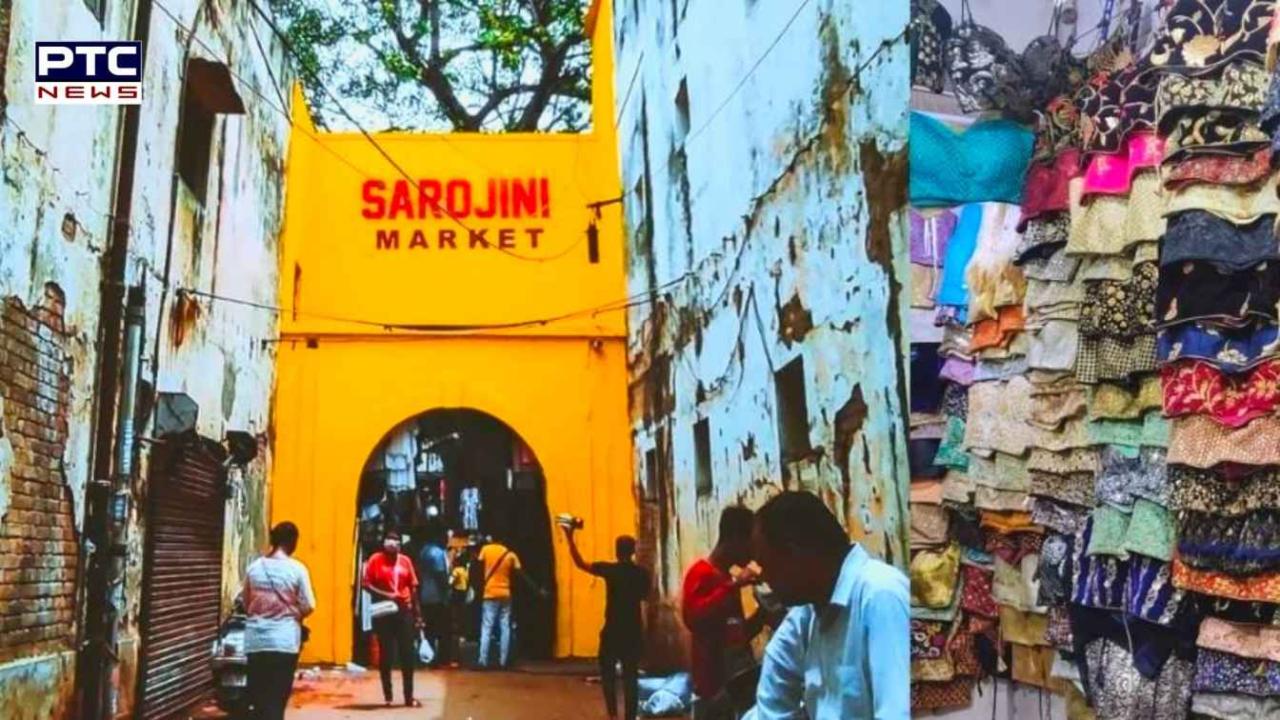

Gen Z and millennials transform Sarojini Nagar into a fashion hotspot, outshining Zara and H&M
PTC News Desk: In 2013, the release of Badshah’s song “Saturday Saturday” from the film Humpty Sharma Ki Dulhania saw Delhi girls embracing the Sarojini Nagar reference with gusto. As club and party culture gained traction, the quirky mention of Sarojini Nagar in the song resonated deeply with many, given the market’s reputation for affordable fashion.
While the charm of Sarojini Nagar Market, one of Delhi’s most iconic shopping destinations, has long been undeniable, admitting to sourcing fashion from there wasn’t always a trend. The market’s appeal lay in its affordability, but wearing its finds was often considered less glamorous—until recently.
Sarojini Nagar Market, which wasn’t always known by its current name, evolved from its origins post-Independence. Initially known as Vinay Nagar, the market emerged as a hub for refugees from Pakistan who settled in Delhi following Partition. Early on, it served as a modest community shopping area catering to local needs with stores selling basic goods.
The late 80s and early 90s marked a turning point as globalization introduced export surplus goods to the market. Vendors began offering high-quality items at bargain prices, including surplus from Western countries. This shift drew fashion enthusiasts and designers seeking unique, budget-friendly finds.
By the late 90s, Sarojini Nagar had established itself as a fashion hotspot. It even attracted Miss Universe 1994 winner Sushmita Sen, who sourced fabric for pageant gowns from the market. Despite a terrorist attack in 2005, which caused significant disruption, Sarojini Nagar rebounded quickly and continued to attract shoppers from all over.
Fast forward to 2024, Sarojini Nagar has become a brand in its own right, fueled by social media. Platforms like Instagram have seen a surge of haul videos and fashion tips centered around the market. Influencers like Komal Pandey and Kritika Khurana have popularised Sarojini finds, demonstrating how items as inexpensive as ₹100 can be styled to perfection.
This social media-driven trend has transformed Sarojini Nagar into a symbol of fashion savvy. The market's unique offerings and low prices have made it a sought-after destination for both influencers and everyday shoppers, leading to a new form of fashion pride among Delhi’s youth.
For Gen Z, shopping at Sarojini Nagar is more than just a transaction—it’s a badge of honor. Ashrey Puri, a fashion and makeup content creator, emphasizes that discovering standout pieces at Sarojini is seen as a skill. Puri recalls wearing a Sarojini blazer to a Cosmopolitan Blogger Awards event and making connections over their shared fashion find.
Unlike fast-fashion giants like Zara and H&M, Sarojini’s offerings are often one-of-a-kind, adding to their appeal. Sufi Motiwala, a fashion commentator, notes that the real flex lies in how individuals style their Sarojini purchases, transforming them into high-fashion statements.
Tanya Bedi, another Gen Z fashion creator, revels in bragging about her Sarojini bargains, reflecting the market’s status as a go-to for budget-friendly fashion. This enthusiasm is echoed by Sarojini Market Online’s Vandit Chawla, who reported significant interest from cities across India when the market’s offerings became accessible online during the pandemic.
Sarojini Nagar’s influence extends beyond Delhi, with travelers from cities like Mumbai, Bengaluru, and Kolkata seeking out its treasures. The market caters to a broad range of needs, from fashion to home decor, drawing diverse crowds.
Despite its growing popularity, shopping at Sarojini Nagar has its challenges. Crowds can be overwhelming, especially on weekends, and finding quality plus-size clothing can be difficult. Nevertheless, the market’s reputation for unique, affordable fashion continues to thrive.
In the end, whether Badshah’s lyrics were a playful jab or not, Sarojini Nagar has emerged as a true fashion icon. For Gen Z and millennials alike, flaunting finds from this beloved market is the ultimate style statement.
- With inputs from agencies
